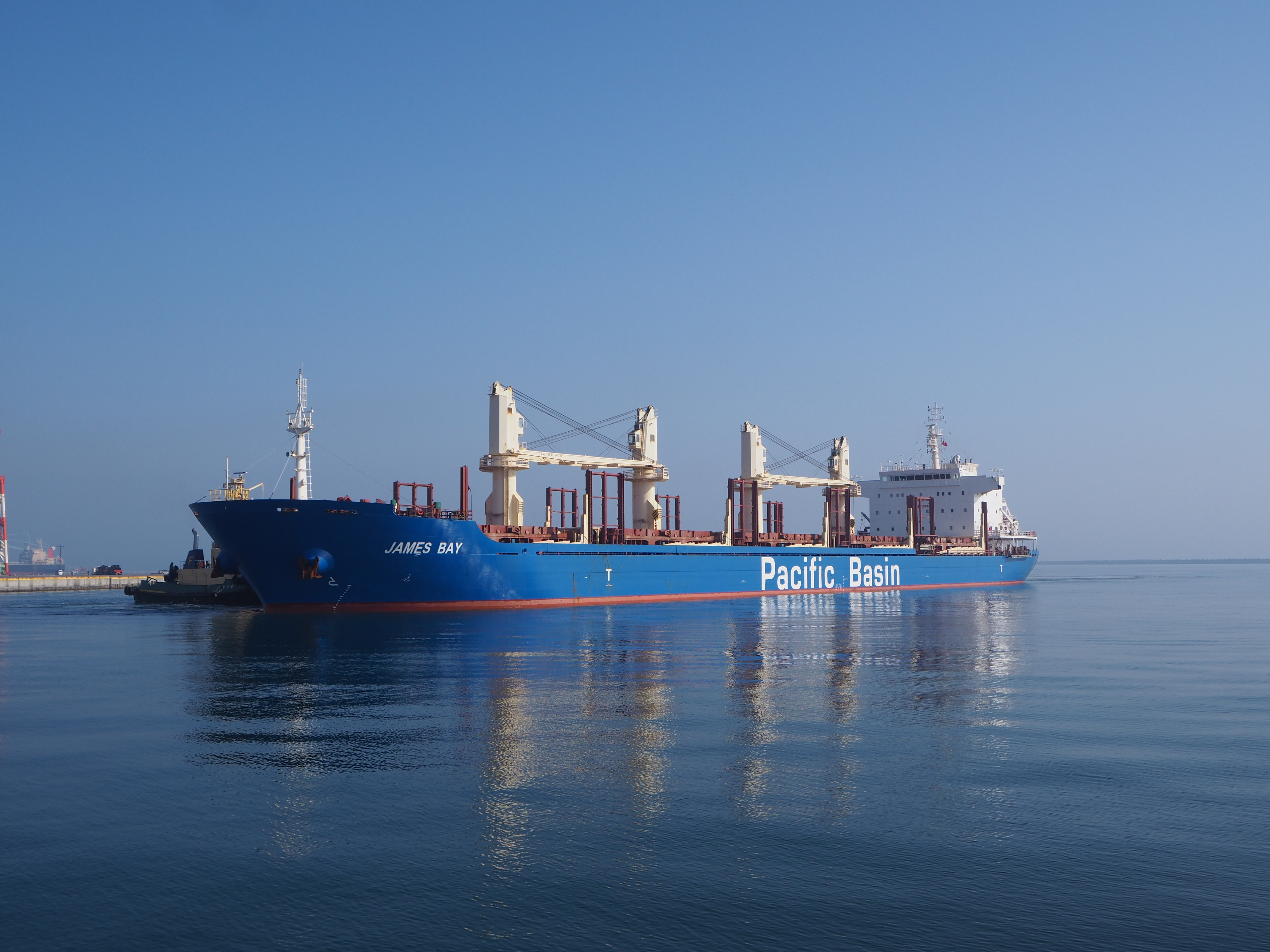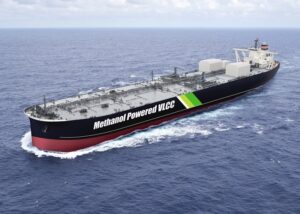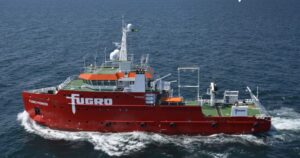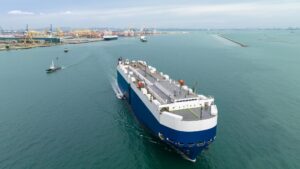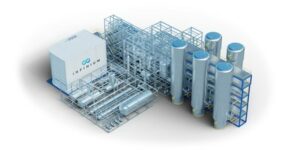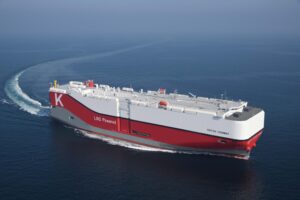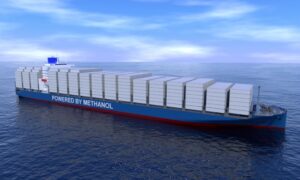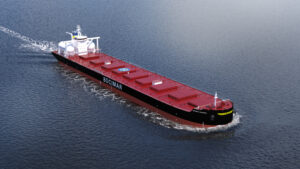Pacific Basin books clean fuel-ready dual-fuel Ultramax newbuild quartet
Following a two-year collaboration with its Japanese partners Nihon Shipyards and Mitsui & Co., Hong Kong-based dry bulk vessel owner and operator Pacific Basin Shipping Limited has ordered four 64,000 dwt dual-fuel low-emission vessels (LEVs).
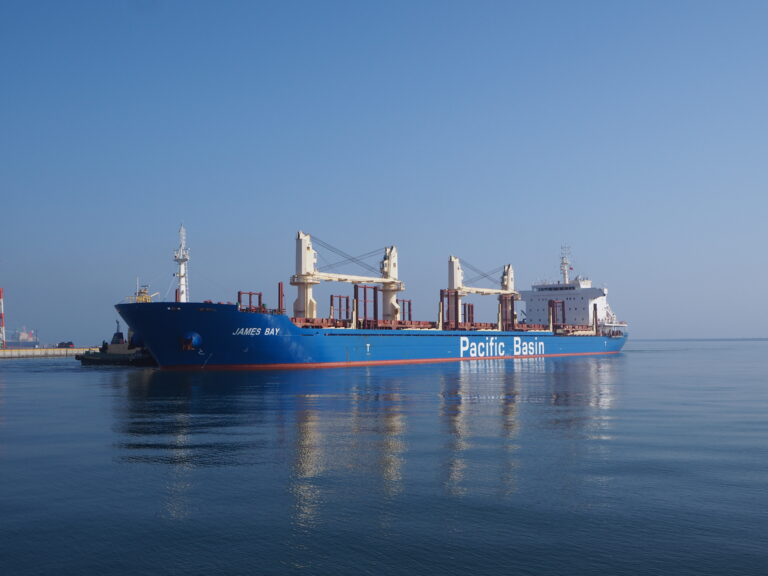
The deal reportedly marks the beginning of a third phase of the collaboration with the Japanese partners after a joint study into the suitability of alternative green fuels for Pacific Basin’s fleet, and the subsequent development of the Ultramax ship design.
As disclosed, the new building quartet will be built by Nihon Shipyards and is slated for a handover in 2028 and 2029.
The Ultramax LEVs are said to feature a design—both in terms of the engine and additional upgrades—that was ‘optimized’ for fuel economy.
According to Pacific Basin, the quartet will be capable of running on conventional fuel oil as well as biofuel and green methanol which, when manufactured using sustainable feedstocks and renewable energy, is believed to generate emissions that can be classified as “low carbon” or even “net zero” on a lifecycle basis.
“Ordering these vessels aligns with our longstanding initiative to develop commercially viable and efficient dual-fuel low-emission vessels, and represents a major milestone in our long-term plan to transition to net zero emissions by 2050,” Martin Fruergaard, Pacific Basin CEO, shared.
“We are confident that the vessels’ design, specification and quality will meet our cargo customers’ requirement for safe, reliable and low-emission transport well into the future,” he added.
The company also unveiled that it signed a memorandum of understanding (MoU) with Mitsui & Co., which will enable Pacific Basin to access greater volumes of green methanol.
This way, and through emissions pooling other conventionally-fuelled Pacific Basin vessels, the LEVs are anticipated to comply with and potentially benefit from the upcoming FuelEU Maritime regulation and the expected IMO global greenhouse gas fuel standard rules.
In addition to this, Pacific Basin is also reportedly in the midst of a dialogue with a number of green fuel suppliers and producers to develop access to bio-methanol and e-methanol as well as biodiesel.
Drawing on the collaborative work with its Japanese partners since May 2022, Pacific Basin is nonetheless “confident” that green methanol is, at present, the most appropriate low-carbon marine fuel for its first generation of LEVs.
Still, it is understood that the bulker operator will continue reassessing the benefits of different fuels as green fuel technology, safety, availability and pricing develop.
Related Article
In regards to the Hong Kong business’s other environmental initiatives, at the beginning of this year, the company inaugurated a dedicated board-level Sustainability Committee to better align its business strategy to climate neutrality targets.

